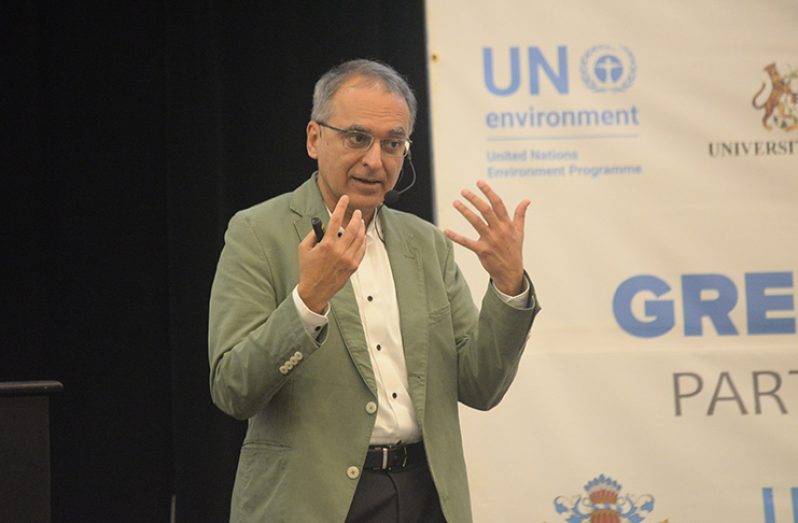-WWF President says innovation has led to reduction in solar energy prices
REDUCING the carbon footprint and mitigating the impacts of climate change globally have been on the agenda of many countries, and President of the World Wildlife Fund (WWF), Pavan Sukhdev, believes that one of the main solutions is solar energy.
Although the United Nations (UN) and its member states have been working to achieve sustainability, Sukhdev said there is no sustainable energy world because fossil fuels are still being subsidised.
Fossil fuel is a general term for buried combustible geologic deposits of organic materials, formed from decayed plants and animals that have been converted to crude oil, coal, natural gas, or heavy oils by exposure to heat and pressure in the earth’s crust over hundreds of millions of years.
According to the National Aeronautics and Space Administration (NASA), over the last century the burning of fossil fuels like coal and oil has increased the concentration of atmospheric carbon dioxide (CO2). This happens because the coal or oil burning process combines carbon with oxygen in the air to make CO2.
“If you start accounting for the cost of climate change as a result of fossil fuel energy, the subsidies are US$5 trillion,” said Sukhdev during his presentation at the WWF’s “Green Conversations” at the Marriott Hotel on Monday.
Fossil fuel subsidies are still around but, the WWF president said innovation has resulted in a decline in the price for an alternative source of power, solar energy.
He made reference to Bangladesh where persons have capitalised on the benefits of solar energy. There are over one million solar home systems in Bangladesh.
“If Bangladesh is doing it then nothing is stopping Guyana and countries in Latin America from doing the same because there is sun,” said Sukhdev.
The WWF has been working with 28 nations to change the way those economies operate by generating circumstances for sustainable development.
“The aim is to build an economy which results in improved human wellbeing and social equity, whilst reducing environmental risk and ecological scarcities,” he said, adding that countries have started to increase their ecological footprint and are eating into the world’s capital, resulting in unsustainability.
In an effort to ensure that the phenomenon is controlled, the WWF has started to focus on ten sectors which include agriculture, fresh water, energy, transportation, waste and waste disposal among others.




.png)









